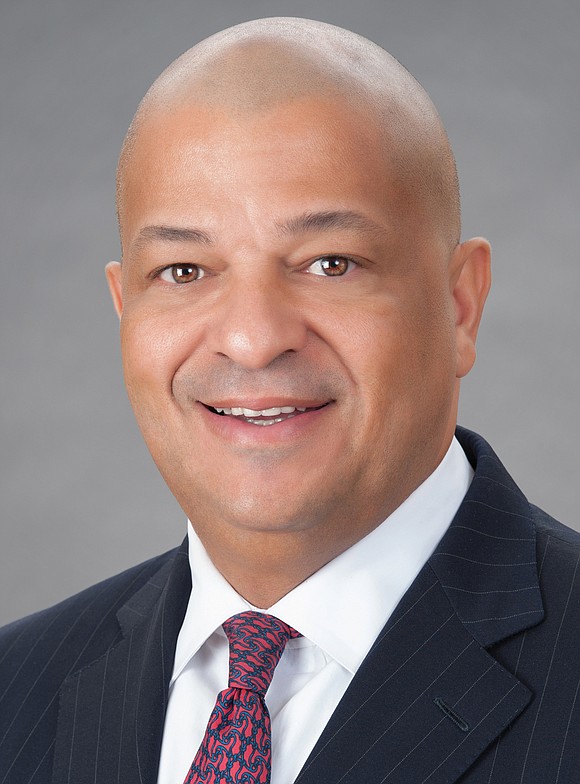Casino defeat raises questions about what’s next
Jeremy M. Lazarus | 11/11/2021, 6 p.m.
Alfred C. Liggins III is firmly committed to making casino gaming a key part of Urban One, the Black media conglomerate he runs with his mother, Cathy Hughes.
That’s still his plan despite the company’s first big casino splash in Richmond going down to a stinging defeat in the Nov. 2 election.
What happens now is still up in the air, Mr. Liggins said Monday in a brief telephone interview with the Free Press.
“We’re still going to pursue opportunities in that field. We see it as complementary to our current businesses.”
But he said in the aftermath of the election, no decisions have been made.
“We’re still processing the information and looking at our different options,” he said. “After all, it’s just been a week.”
According to the vote tally that has not yet been certified by election officials, nearly 79,000 people in Richmond voted in the casino referendum – or nearly half of the city’s 160,000 registered voters. Of those voting, 40,261 ballots were cast opposing a casino, while 38,350 voted for it.
There is much conjecture about why Urban One’s proposal to develop a $565 million casino and resort went down to defeat.
Mr. Liggins had pushed the narrative that the huge private investment would create jobs and generate $50 million a year in new tax revenue for the city after its planned opening in late 2024.
He also touted his company’s ability to put Richmond squarely on the entertainment map by bringing “a whole new level of entertainment because the casino complex” could subsidize the costs of bringing in A-list artists to perform at the venue.
But the opponents’ argument that the casino would need to extract $300 million a year from the working class in order to operate appeared to find greater support. As that narrative went, Richmond did not need a casino to be a successful city.
Mr. Liggins considers it ironic that “a majority of voters thought the project would be bad for the people who most wanted it for the jobs, contracts and opportunities it would offer.”
Some are pointing to the city’s changing demographics, in which Caucasians now outnumber African-Americans 43 percent 40 percent, and to rising valuations of property in the city — even in once depressed sections — that are making it harder for low-income residents to rent or own.
Based on mapping, it appears that white voters in the city were more prone to vote against the casino and Black voters were more likely to support it.
Still, the data suggests that this was not just a simple black-white issue.
The largest chunk of “no” votes came from the majority-white 1st, 2nd and 4th City Council districts. Strong opposition previously had surfaced in those districts to proposals from other competing casino operators to locate on a movie theater site in North Side or in a shopping district in the western portion of South Side.
The strongest support for the casino came from the majority-minority 6th, 7th, 8th and 9th districts.
But there were significant nuances.
The 5th District offers indications that many in the Black community were not sold on the casino.
While the majority-white Precinct 501 at John B. Cary Elementary School rejected the casino measure, so did precincts with greater diversity, including Precinct 503 at Maymont Elementary School and Precinct 504 at the Randolph Community Center.
In the South Side portion of the 5th District, the majority white Precinct 508 at Woodland Heights Baptist Church gave the casino a thumbs down, while the majority Black Precinct 509 at George Wythe High School endorsed the casino.
But the diverse Precinct 510 at Swansboro Elementary School only approved the casino by a 16-vote margin out of 846 votes cast.
The rejection vote had a broad base. According to the election results, a majority of younger voters who cast ballots at the Virginia Commonwealth University Student Commons, as well as older voters casting ballots at Imperial Plaza, all rejected the casino plan.
The Richmond defeat does not mean that there will be no casino in the Richmond region.
Mr. Liggins believes it is likely that the General Assembly will consider awarding the casino opportunity to another locality in Central Virginia.
“I think the General Assembly has gotten comfortable with the idea of a casino in the Central Virginia area,” Mr. Liggins said.
He may be right. Already, there is already talk of Petersburg being a possible casino site.
As the center point for the area, Richmond was the legislature’s favorite site, but the vote has opened the door to competition for a potential new casino site.
Mr. Liggins is keeping mum about whether his company would take part in any new competition that might develop.








